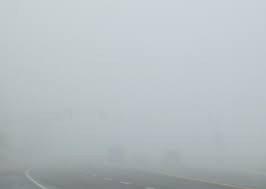fog
英 [fɒɡ]
美 [fɑːɡ]
- n. 雾;烟雾,尘雾;迷惑
- vt. 使模糊;使困惑;以雾笼罩
- vi. 被雾笼罩;变模糊
- n. (Fog)人名;(丹)福
使用频率:

记忆方法
将“fog”与“foggy”联系起来,想象一个“f”像雾气,而“og”则像是雾中的人或物体。这种视觉联想可以帮助你记住“fog”这个单词,它表示雾气弥漫的状态。
以上内容由AI生成, 仅供参考和借鉴
中文词源
fog 雾
词源不详。
英语词源
- fog
-
fog: [16] The word fog is something of a mystery. It first appears in the 14th century meaning ‘long grass’, a use which persists in Yorkshire fog, the name of a species of grass. This may be of Scandinavian origin. The relationship, if any, between fog ‘grass’ and fog ‘mist’ is not immediately clear, but it has been speculated that the adjective foggy, which to begin with referred to places overgrown with long grass, and then passed via ‘of grassy wetlands’ to ‘boggy, marshy’ may have given rise via this last sense to a noun fog denoting the misty exhalations from such marshy ground.
A rather far-fetched semantic chain, perhaps, lacking documentary evidence at crucial points, and perhaps Danish fog ‘spray, shower’ may be closer to the real source.
- fog (v.)
- 1590s (transitive), from fog (n.1). Intransitive use from 1849. Related: Fogged; fogging.
- fog (n.1)
- "thick, obscuring mist," 1540s, a back-formation from foggy (which appeared about the same time) or from a Scandinavian source akin to Danish fog "spray, shower, snowdrift," Old Norse fjuk "drifting snow storm." Compare also Old English fuht, Dutch vocht, German Feucht "damp, moist." Figurative phrase in a fog "at a loss what to do" first recorded c. 1600. Fog-lights is from 1962.
- fog (n.2)
- "long grass, second growth of grass after mowing," late 14c., probably of Scandinavian origin; compare Norwegian fogg "long grass in a moist hollow," Icelandic fuki "rotten sea grass." A connection to fog (n.1) via a notion of long grass growing in moist dells of northern Europe is tempting but not proven. Watkins suggests derivation from PIE *pu- (2) "to rot, decay" (see foul (adj.)).
权威例句
- 1. His mind was in a fog when he finally got up.
- 他终于起床了,头脑一片混沌。
- 2. The fog had lifted and revealed a warm, sunny day.
- 雾已经散了,看来是温暖晴朗的一天。
- 3. She heard the sound of the guns thundering in the fog.
- 她听到雾中传来隆隆的枪炮声。
- 4. Synchronizing these attacks may be difficult in the fog of war.
- 在迷雾一样的战争中可能很难同时发动这些攻击。
- 5. Some fog warning signs had been put up with flashing yellow lights.
- 一些配有黄色闪光灯的大雾警示标志立了起来。
